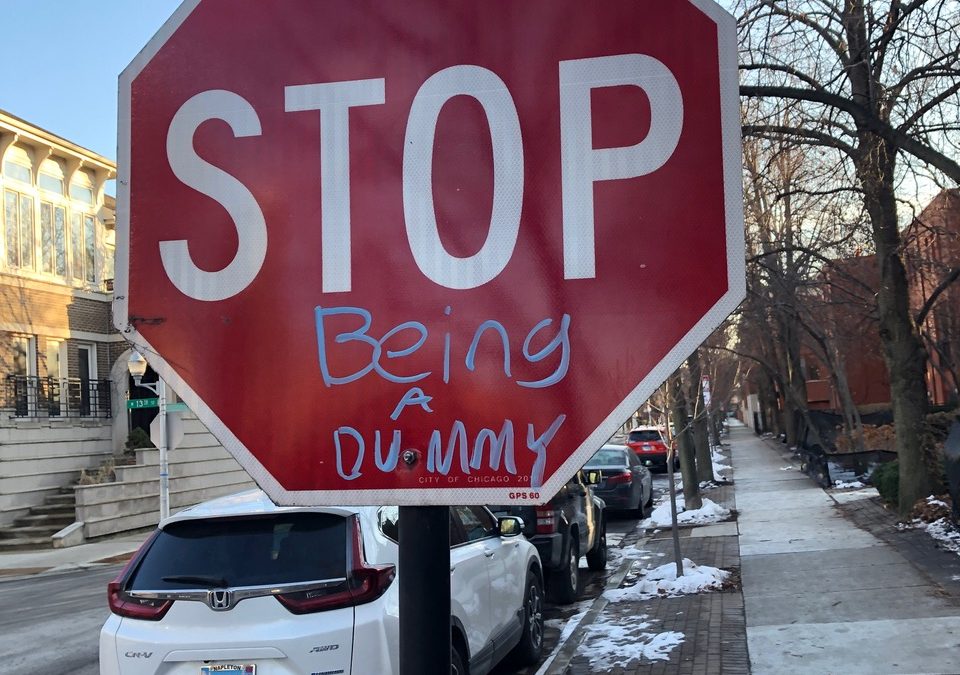Do not plan harm against your neighbor who lives trustingly beside you. (Proverbs 3:29, New Revised Standard Version)
We live in the South Loop neighborhood of Chicago in a little area called Dearborn Park II, about 3/4 mile west of the Field Museum. It’s a quiet little nook, but it’s still the city so one never knows what surprises might pop up.
One of these surprises caught my attention a few weeks ago. I was walking our dog and noticed that someone decided to share some kind of statement (encouragement?) on a stop sign. As you can see in the photo above, the person is asking passersby to “Stop Being A Dummy.” I’d love to know what the author had in mind. What constitutes “dummy” behavior? Maybe it’s better that we don’t know. In our days of strident polarization, it’s the kind of statement that almost everyone can agree on…of course, not everyone would agree would being a dummy means!
The sign also weirdly reminded me of John Wesley. For the non-Methodists who read this, Wesley was one of the founders of the Methodist movement in the Church of England in the 18th century. In his desire to help bring about revival in England, Wesley oversaw the creation of countless groups who, he hoped, would “seek the power of godliness, receive a word of exhortation, watch over one another in love and help each other work out their salvation.” To help them do this, he created three general rules (I’m modernizing the language a bit): Do no harm. Do good. Stay in love with God. (The late Rueben Job wrote a lovely little book that can be quickly read about these rules).
The first rule may seem like it’s kind of a low bar: Do no harm. And yet if we take it seriously, it can be transformative. Job notes in his book: “When I am determined to do no harm to you, I lose my fear of you; and I am able to see you and hear you more clearly.”
I was meditating on Psalm 1 last week and the psalmist gives the reader some pretty clear choices about how to live life. A person can either follow the advice of the wicked (verse 1) or delight in the law of the Lord (verse 2). These choices along with the Stop Sign Messenger and John Wesley have given me some pretty good tools in my day-to-day life. I have constant choices every day. It’s helpful to first stop. Pause. Consider. Pray that I do no harm. And then choose which advice I should follow.
Deciding not to be a dummy–doing no harm–is a pretty good place to start.

